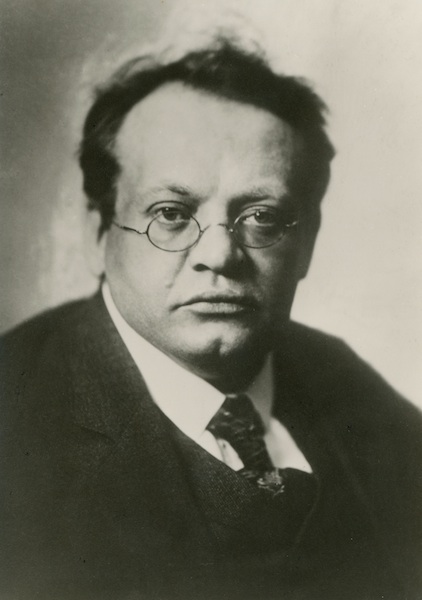Early Life and Musical Beginnings
Johann Baptist Joseph Maximilian Reger, known as Max Reger, was born on March 19, 1873, in Brand, Bavaria. His father, Josef Reger, was a schoolteacher and amateur musician who recognized his son’s musical talent early on. Young Max began piano and organ lessons at an early age, showing remarkable aptitude for music.
In 1888, Reger began studying with Hugo Riemann, a renowned music theorist and composer. This period was crucial in shaping Reger’s musical style, as Riemann’s theories on harmony and form greatly influenced the young composer’s approach to music.
Rise to Prominence
Reger’s career as a composer and performer began to take off in the late 1890s. He moved to Munich in 1901, where he established himself as a leading figure in the city’s musical life. During this time, he composed prolifically, producing works in various genres, from chamber music to large-scale orchestral pieces.
Major Works and Contributions
Organ Works
Reger is perhaps best known for his contributions to organ music. His organ compositions, including the monumental “Fantasia and Fugue on BACH” (1900) and the “Introduction, Passacaglia, and Fugue in E minor” (1913), are considered some of the most challenging and complex works in the organ repertoire.
Chamber Music
Reger’s chamber music output is extensive and includes works for various instrumental combinations. His string quartets, particularly the String Quartet in E-flat major, Op. 109 (1909), showcase his mastery of counterpoint and harmonic complexity.
Orchestral Works
While less well-known than his organ and chamber works, Reger’s orchestral compositions are significant. The “Variations and Fugue on a Theme by Mozart” (1914) is considered one of his masterpieces, demonstrating his skill in variation form and orchestration.
Piano Works
Reger composed numerous works for piano, including sonatas, variations, and character pieces. His “Variations and Fugue on a Theme by Telemann” (1914) for piano is a tour de force of pianistic writing and contrapuntal mastery.
Musical Style and Innovations
Reger’s musical style is characterized by its complexity, both harmonically and contrapuntally. He pushed the boundaries of tonality while still working within a tonal framework, creating a unique sound world that bridged the gap between late Romanticism and early Modernism.
Key aspects of Reger’s style include:
- Dense, chromatic harmonies that push the limits of traditional tonality
- Intricate counterpoint, often featuring multiple simultaneous melodic lines
- Large-scale structures, particularly in his variation sets and fugues
- A synthesis of Baroque contrapuntal techniques with Romantic expressiveness
Teaching Career and Influence
In addition to his work as a composer, Reger was an influential teacher. He held positions at the Leipzig Conservatory and the Munich Academy of Music, where he taught composition and music theory. His students included Joseph Haas and George Szell, both of whom went on to have significant careers in music.
Reger’s theoretical writings, particularly his “Beiträge zur Modulationslehre” (Contributions to the Theory of Modulation), had a lasting impact on music theory and composition pedagogy.
Later Years and Legacy
Despite his relatively short life, Reger’s output was prolific. He composed over 1,000 works in various genres, maintaining a grueling schedule of composition, performance, and teaching. His lifestyle, which included heavy drinking and smoking, took a toll on his health.
Reger died on May 11, 1916, in Leipzig, at the age of 43. His sudden death cut short a career that was still in its prime, leaving the musical world to wonder what further innovations he might have produced had he lived longer.
After his death, Reger’s music fell into relative obscurity, overshadowed by the more radical experiments of the Second Viennese School and other modernist composers. However, in recent decades, there has been a revival of interest in his works, with performers and scholars rediscovering the richness and complexity of his musical language.
Reger’s Place in Music History
Max Reger occupies a unique position in music history. He stood at the crossroads of Romanticism and Modernism, synthesizing elements of both in his highly individual style. While his music was sometimes criticized for its complexity during his lifetime, it is now recognized as an important link between the 19th and 20th centuries in music.
Reger’s influence can be seen in the works of later composers, particularly in the realm of organ music. His expansion of harmonic language and his revival of Baroque forms and techniques paved the way for future developments in 20th-century music.
Conclusion
Max Reger’s life and work represent a fascinating chapter in the history of Western classical music. His ability to combine the contrapuntal mastery of the Baroque with the harmonic innovations of the late Romantic period created a unique and challenging musical language that continues to intrigue and inspire musicians and listeners alike.
From the monumental organ works to the intricate chamber pieces, from the large-scale orchestral variations to the intimate piano miniatures, Reger’s music offers a wealth of complexity and emotion. As we continue to explore and perform his works, we gain a deeper appreciation for the artistry and innovation of this often-overlooked master composer.
Reger’s legacy serves as a reminder of the rich diversity of musical expression that flourished at the turn of the 20th century. His music, with its dense textures, complex harmonies, and rigorous counterpoint, challenges us to listen more deeply and to appreciate the intricate beauty of musical craftsmanship at its highest level.

